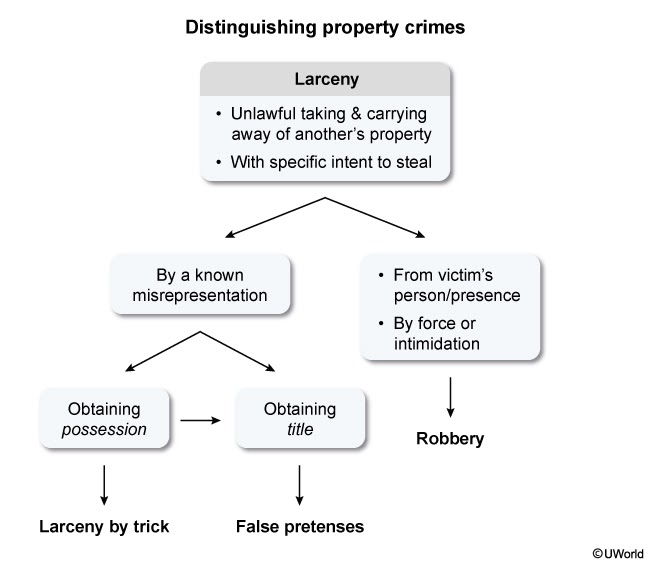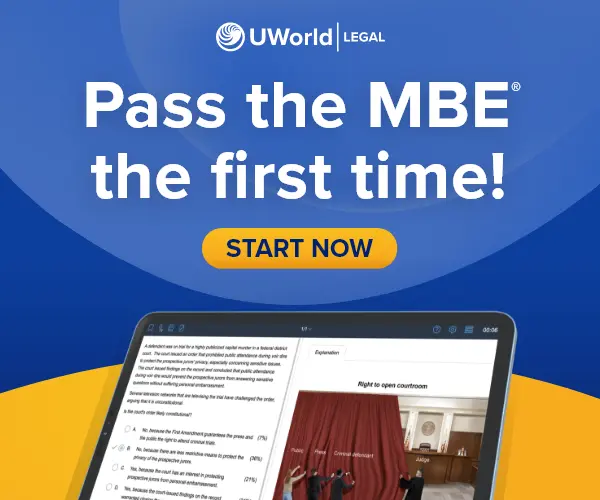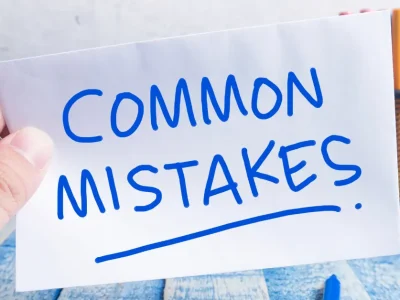While studying for the bar, most of us can readily identify larceny—the taking and carrying away of another’s personal property with the intent to permanently deprive the owner of that property (i.e., intent to steal). But what happens when the bar examiners add other facts to a scenario and ask you to determine whether the crime committed is simple larceny, larceny by trick, or a related crime? Here is a quick and pain-free way of spotting the correct crime to better prepare you on exam day. Just ask two questions!
Question 1: Was a misrepresentation used to obtain possession of or title to the property?
A person who commits larceny by knowingly misrepresenting a past or present material fact can be guilty of either:
- Larceny by trick – when the misrepresentation is used to obtain possession of another’s property (e.g., claiming you have permission to borrow a car to drive off without intending to return it)
- False pretenses – when the misrepresentation is used to obtain title to another’s property (e.g., misrepresenting your identity by using a fake driver’s license to purchase and gain title to a car)
If there was no misrepresentation, continue to the next question.
Question 2: Was the property taken from the victim’s person or presence through the use of force or intimidation?
This question is important because a simple larceny is elevated to robbery when the property is taken from another by intimidation or force (e.g., knocking a victim down). The force must be more than is necessary to take the property. This means that a sudden snatching of property does not amount to robbery unless the victim resists and the defendant uses force to obtain or keep the property.
Here is a flowchart that pulls all these concepts together:

Easy, right? Now use this flowchart to analyze larceny and related crimes when you tackle criminal law questions in the UWorld MBE® QBank. Click here to access our QBank or purchase a subscription.
MBE® is a registered trademark of The National Conference of Bar Examiners® (NCBE®). NCBE does not endorse, promote, or warrant the accuracy or quality of the products or services offered by UWorld Legal.




